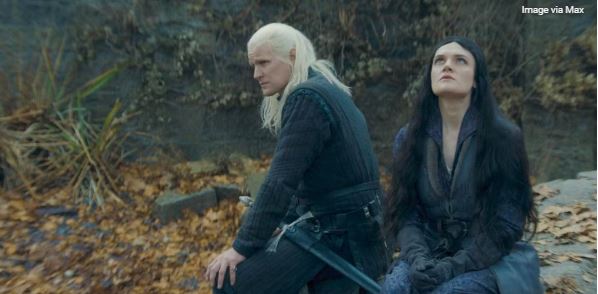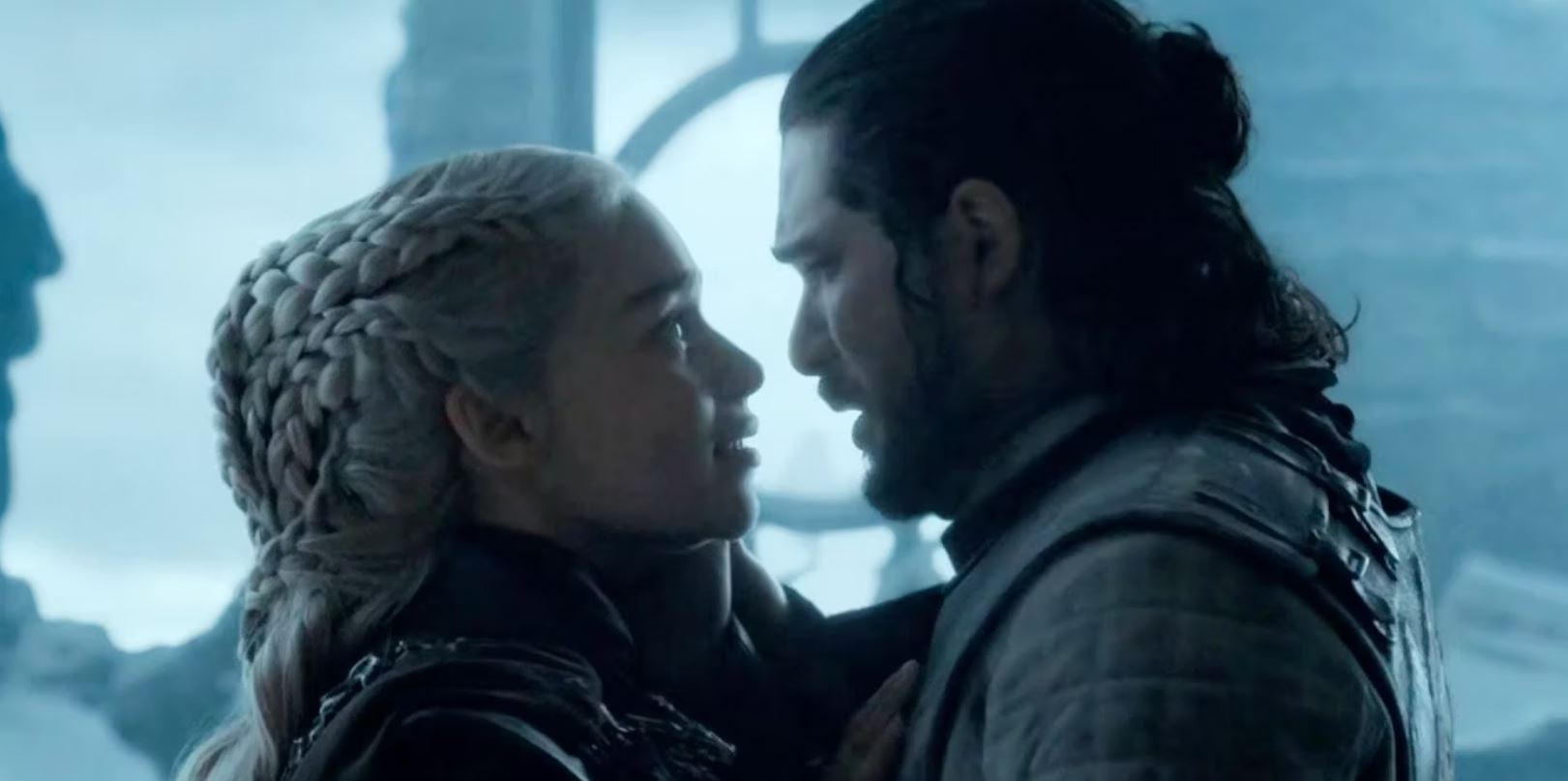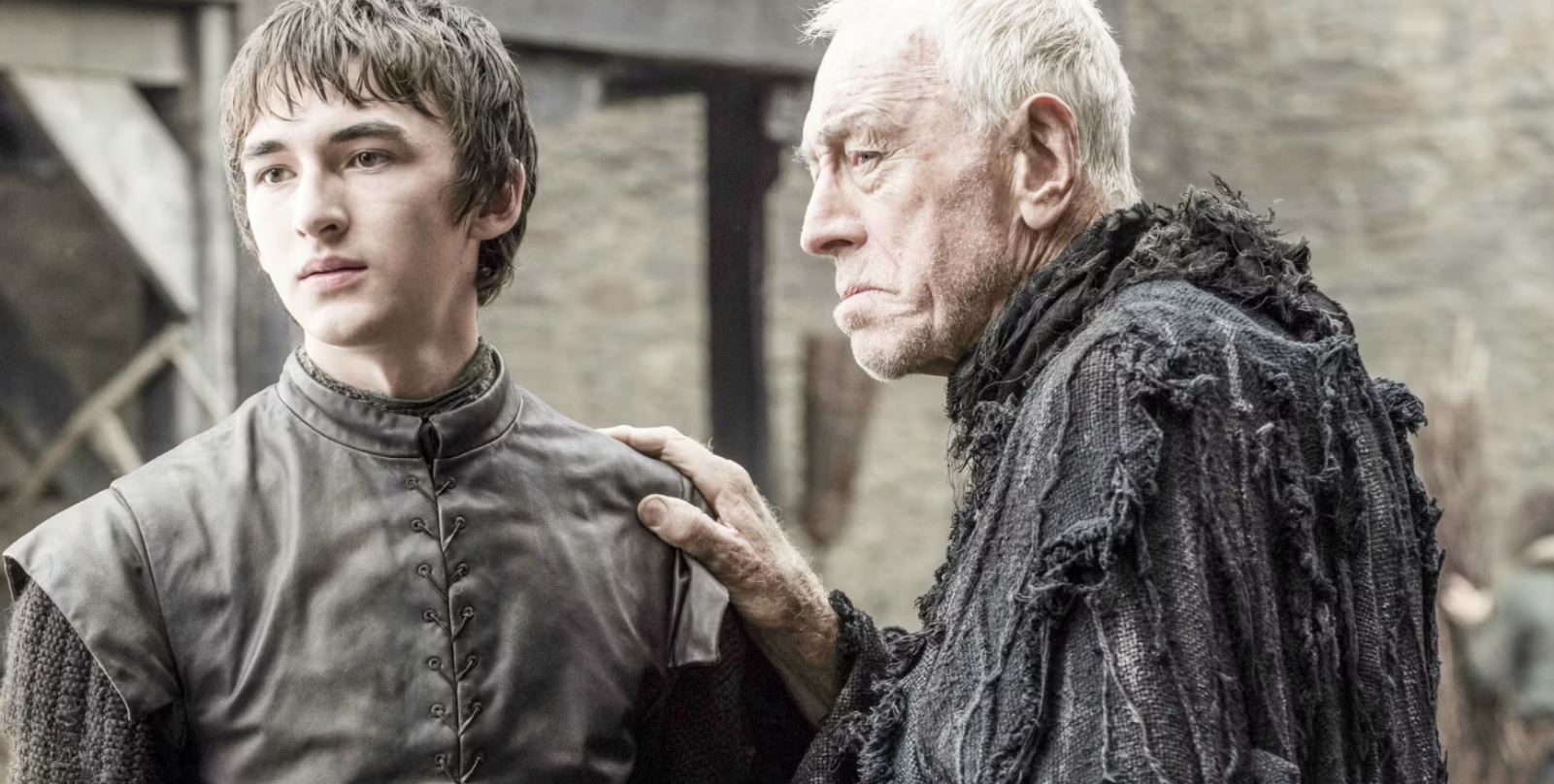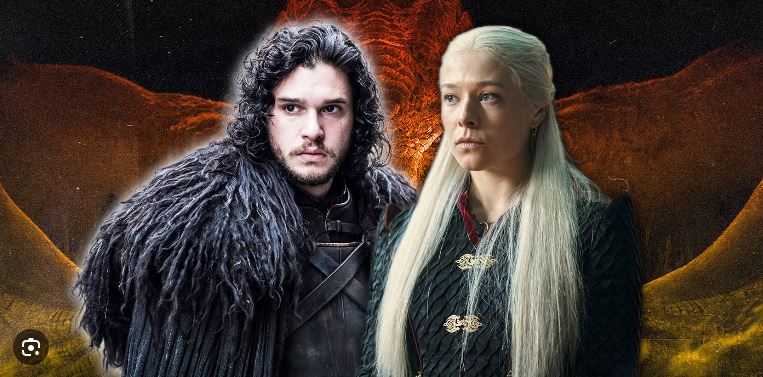Five years after Game of Thrones’ divisive ending, House of the Dragon gives more support to the idea that Jon Snow was the right character to become king. Among the most controversial elements of Game of Thrones’ ending was which character ended up on the Iron Throne, as the majority of the show had been building toward either Daenerys Targaryen or Jon Snow as the most worthy leaders. However, even when it was revealed that Jon Snow was actually the trueborn son of Rhaegar Targaryen and Lyanna Stark, and thus the rightful heir to the Iron Throne, he still didn’t become King of Westeros.
Considering Jon Snow kills Daenerys Targaryen in the finale, neither of the two remaining Targaryens land on the Iron Throne. Instead, it’s Bran Stark, aka the Three-Eyed Raven. This divisive ending has arguably been undermined further as House of the Dragon highlights another contentious era in Targaryen history regarding various fit and unfit heirs to the Iron Throne – especially with the new context of Aegon’s Song of Ice and Fire dream. As the characters weigh which Targaryen is most suited to the throne, the reasons why Rhaenyra should be Queen in House of the Dragon are very similar to why Jon should have been King in Game of Thrones.
Alys Rivers’ Comment On Daemon Being King Reflects GRRM’s Themes About Leaders

George R.R. Martin’s Stories Often Favor Reluctant Leaders
In House of the Dragon season 2, episode 6, Daemon Targaryen and Alys Rivers discuss the Prince’s desire to sit on the Iron Throne, being discontented with his wife/niece inheriting it instead. Daemon claims that he was originally Viserys’ heir and had always desired to succeed his brother on the Iron Throne, with Rhaenyra never having wanted the crown in the first place. Alys Rivers responds, “Perhaps that’s why your brother gave it to her. Perhaps those who strive for it are the least suited to wear it.” Of course, this was one of the biggest overarching themes in Game of Thrones’ titular conflict.
[Viserys] was better suited for the job over someone like Daemon, whose personal ambitions, desire for power, and authority complexes stand in the way of being an effective leader for the masses.
Alys makes a great point in that those whose ambition lies in sitting on the Iron Throne often makes them the worst people for that position. King Viserys wasn’t the most beloved king in Westerosi history, but he was better suited for the job over someone like Daemon, whose personal ambitions, desire for power, and authority complexes stand in the way of being an effective leader for the masses. A great ruler won’t abuse this power as they sacrifice personal desires for the better of the realm, and this quality doesn’t often align with the personalities of those striving for the crown.
Fittingly, A Song of Ice and Fire and Fire & Blood author George R.R. Martin often favors the idea of the reluctant leader in his narratives, such as Rhaenyra. Those who don’t want this power or feel entitled to it are often seen as the best people to hold it, which follows Jon Snow’s entire story as he goes from the bastard of Winterfell to the Lord Commander of the Night’s Watch to the reluctant King in the North. Of course, reluctant leaders aren’t always necessarily good kings, such as Robert Baratheon, but these poor examples are far outnumbered by those who serve well in the franchise.
Jon Snow Was The Ultimate Reluctant Leader In Game Of Thrones

“I Don’t Want It” Became Jon Snow’s Catchphrase In Game Of Thrones
Of all the Game of Thrones characters who ascended to great positions of power, Jon Snow was the most reluctant to take on such roles, despite how qualified he was for them. Jon originally didn’t want to become Lord Commander of the Night’s Watch – he was nominated by his fellow brothers. Jon didn’t want to be the King in the North – the Northmen gathered around him and sought him as their leader against Cersei, the Southerners, and the White Walkers. Even when Jon turned out to be Aegon VI Targaryen, the rightful heir to the Iron Throne, he reiterated that he didn’t want it.
“I don’t want it” became one of the most frequent quotes from Jon Snow in Game of Thrones season 8. Yet, those who surrounded him and had previously followed him into battle knew that he was the right person to lead the realm. Daenerys had tragically become corrupted by war, power, and grief by Game of Thrones’ ending, so while she was set up as the member of House Targaryen to reclaim the Iron Throne earlier in the show, it became increasingly apparent that Jon was better suited for it.
Jon was able to strike love and admiration, not fear, into his followers, and he had no ambitions for the crown like Daenerys had dreamed of for so many years. He didn’t try to work to be a leader and force others to submit to him; these qualities just came to him naturally. He inherited Ned Stark’s penchant for justice, loyalty, and honor, while also maintaining a certain level of ruthlessness and emotional reactivity. Despite how much these characterizations favored Jon throughout most of Game of Thrones, he never once sat on the Iron Throne.
Jon Snow Being King Would’ve Been A Better Ending Than Bran

The King Bran Ending Isn’t As Deserved As Jon On The Iron Throne
Jon Snow winding up on the Iron Throne would have been a quite tragic ending, but far more compelling than King Bran. Bran’s all-knowing power, lack of any ambition or desire, and harrowing journey to become the new Three-Eyed Raven led to him becoming King of Westeros in Game of Thrones’ ending, yet he still seemed less suited to the role than someone like Jon Snow. Considering Jon landing on the Iron Throne would have only been accomplished by killing Daenerys, betraying his values and honor, and obtaining a power he isn’t compelled to maintain, it would still be a sad fate for the character.
House of the Dragon emphasizes that the Iron Throne isn’t a prize to be won, but a burden to bear, and that theme would have been driven home much better in Game of Thrones had Jon become King.
Jon is also arguably a far more compelling character than Bran, whose ascension to the Iron Throne feels far more deserved after everything both experienced. Retrospectively, Jon Snow on the Iron Throne fits better with Aegon’s Song of Ice and Fire dream, as the Conqueror foresaw him as the Prince That Was Promised, who would unite the realm against the White Walkers while sitting the throne. House of the Dragon emphasizes that the Iron Throne isn’t a prize to be won, but a burden to bear, and that theme would have been driven home much better in Game of Thrones had Jon become King.
